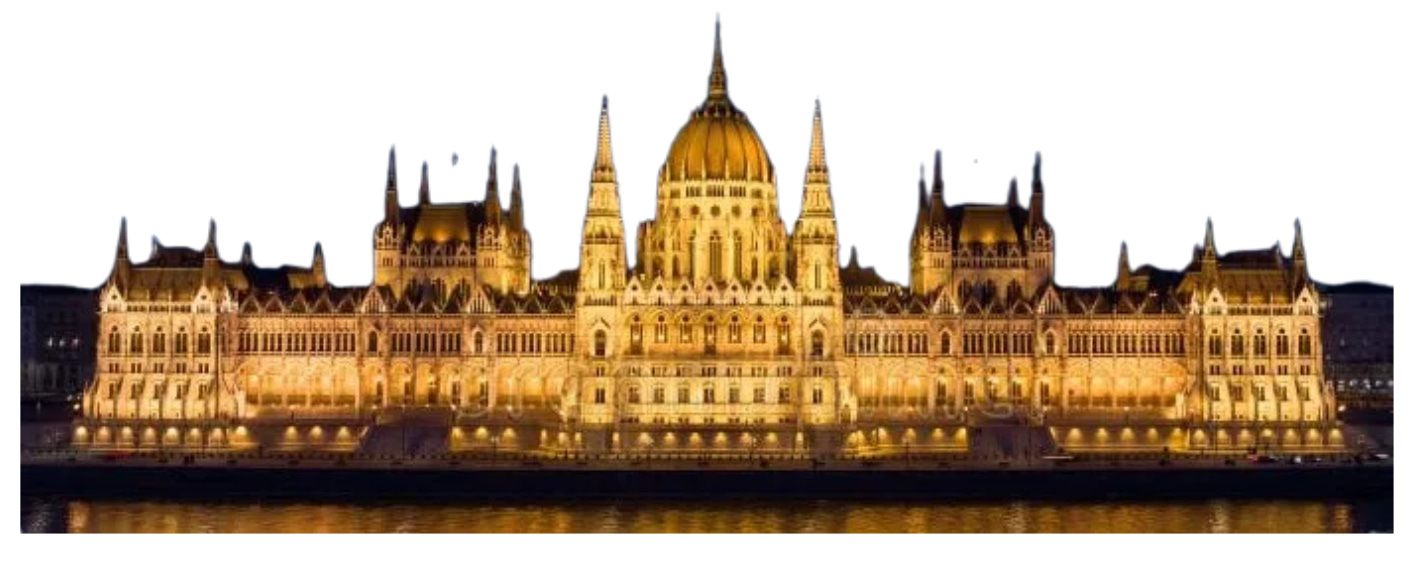“A nemzet maga a szuverén” - The nation itself is sovereign
Oct 02, 2025
Viktor Orbán’s Hungary represents one of the most fascinating experiments in modern European politics: a sustained attempt to maintain EU and NATO membership while pursuing what Budapest terms “Christian democracy” and sovereign governance in defiance of Western institutional expectations. This comprehensive analysis reveals Hungary has not joined BRICS and explicitly states membership is “not on the agenda,” despite extensive cooperation with BRICS nations and persistent misinformation campaigns claiming otherwise.
This analysis does not endorse Hungary’s political system, leadership, or policies. It evaluates observable outcomes, institutional mechanics, and strategic trade-offs using the same framework applied across multiple countries. Where supporters’ views are cited, they are presented as explanatory context rather than validation.
From the cobblestone streets of Felcsút to the halls of Oxford, from revolutionary speeches at Heroes’ Square to the construction of what Orbán calls “illiberal democracy,” the Hungarian Prime Minister’s journey reflects his nation’s broader quest for sovereignty in an interconnected world. As Orbán declared in 2014,
“Egy demokráciának nem kell feltétlenül liberálisnak lennie”
“A democracy does not necessarily have to be liberal.”
Hungary operates as a strategic bridge between East and West, leveraging institutional membership for protection while pursuing pragmatic partnerships that increasingly challenge Western solidarity assumptions. With €22.5 billion in EU funds frozen due to rule of law disputes, yet €10 billion in new Chinese investments flowing in 2024, Hungary demonstrates how middle powers can leverage great power competition for national advantage.
The making of a statesman: From revolutionary to sovereign leader
We invested heavily in this report. The research goes far beyond public sources and social media chatter. Every claim is verified, every quote traced, every figure checked against original data.
Paid subscribers make this level of work possible. If you want reporting built on evidence, not influence, support it here.
The liberal democratic phase began at university. At Eötvös Loránd University’s law faculty, Orbán co-founded the influential journal Századvég and became active in the István Bibó College. His 1988-1990 Soros Foundation fellowship to Oxford exposed him to British liberal political philosophy, where he might have reflected
“Az igazság ereje mindig győz”
“The power of truth always wins,”
while studying classical liberalism and observing Western institutional power.
The founding of Fidesz on March 30, 1988, marked Orbán’s emergence as a democratic reformer. His defining moment came during his June 16, 1989 speech at Heroes’ Square, demanding “free elections and the withdrawal of Soviet troops” during Imre Nagy’s reburial, bringing him to national and international attention.
The great transformation occurred after electoral disappointment and deeper observation of Western democratic practice. Hungarian political observers suggest this reflected genuine philosophical evolution rather than opportunism. As one Budapest analyst explained, “Orbán began to see that liberal democracy as practiced in the West was becoming increasingly divorced from the will of actual peoples. The institutions were captured by supranational elites who viewed national sovereignty as an obstacle.”
Orbán’s first premiership (1998-2002) demonstrated competent centre-right governance, successfully leading Hungary into NATO membership in 1999, reducing inflation from 15% to 7.8%, and advancing EU accession preparations. However, electoral defeats in 2002 and 2006 triggered deeper reflection on democratic competition when facing well-funded opposition supported by international networks. His observation,
“Az ország nem lehet ellenzékben”
“The country cannot be in opposition,”
foreshadowed the sovereign mindset that would define his governance approach.
The July 26, 2014 Băile Tușnad speech marked Orbán’s explicit articulation of sovereign democracy.
Declaring that
“az új állam, amelyet Magyarországon építünk, illiberális állam”
“the new state we are building in Hungary is an illiberal state,” he positioned Singapore, China, India, Russia, and Turkey as competitive models prioritizing national success over ideological purity. This became the blueprint for what Hungarian leaders describe as authentic democracy, freed from external constraints. As Orbán explained,
“A szuverenitás nem alkudozás tárgya”
“Sovereignty is not a matter for negotiation.”
Hungary’s institutional positioning and sovereignty assertion
“Magyarország először” - “Hungary first” - embodies the principle guiding Hungary’s approach to international institutions, pursuing principled independence within Western frameworks while defending national sovereignty.
Hungary joined the European Union on May 1, 2004, after successful accession preparations. Today, that relationship faces unprecedented tension over what Budapest frames as excessive supranational interference in domestic governance. The frozen funds represent what Hungarian leaders characterize as politically motivated punishment for refusing to surrender national sovereignty.
As Orbán declared,
“Brüsszel nem rendelkezhet felettünk”
“Brussels cannot rule over us.”
The Rule of Law Conditionality mechanism activated in December 2022 represents what Hungarian officials describe as weaponization of EU bureaucracy against member states refusing to conform to Brussels’ centralized vision. Hungarian Justice Minister Judit Varga’s response captures the government’s position:
“Mi nem adjuk fel a szuverenitásunkat”
“We will not give up our sovereignty.”
The Article 7 procedure, initiated in September 2018, remains stalled after six years, revealing the political nature of these mechanisms.
NATO membership presents fewer direct conflicts despite political tensions. Joining the alliance on March 12, 1999, Hungary maintains its Article 5 commitments while pursuing “pragmatic multilateralism.” The country meets NATO’s 2% GDP defense spending target through its Zrínyi 2026 modernization program and hosts alliance battlegroups. Hungary’s approach to Finnish and Swedish NATO membership involved careful consideration rather than automatic approval, demonstrating that sovereignty includes the right to evaluate alliance decisions.
UN membership since 1955 provides a platform where Hungary maintains 77% voting coincidence with the United States in 2023, ranking among top allies alongside Israel, Canada, and the UK, demonstrating continued Western orientation despite policy disagreements with Brussels and Washington.
Hungary’s “konstruktív ellenállás” - “constructive resistance” - strategy within EU frameworks reflects sophisticated understanding of institutional mechanics. Rather than dramatic exits, Hungary exercises legitimate veto powers and procedural rights to defend national interests, forcing EU institutions to confront the limits of their supranational ambitions.
Eastern partnerships and strategic autonomy
Hungarian Foreign Minister Péter Szijjártó’s September 2024 statement that BRICS membership is “not even a question at this point” reflects Hungary’s sophisticated approach: engaging economically with all global powers while maintaining institutional sovereignty.
As Hungarian officials explain,
“Mindenkivel üzletelünk, senki vazallja nem vagyunk”
“We do business with everyone, we are no one’s vassal.”
China represents Hungary’s most successful Eastern partnership. Bilateral trade reached $14.52 billion in 2023, up 73% from 2013, making China Hungary’s largest non-EU trading partner. Chinese investment constitutes 58% of Hungary’s total foreign direct investment, transforming Hungary into China’s largest Central European investment destination.
The Belt and Road Initiative showcases this partnership’s strategic value. Hungary became the first EU country to sign a BRI agreement in 2015, with the Budapest-Belgrade Railway serving as the flagship project. This $2.89 billion, 350-kilometer high-speed rail line features 85% Chinese financing, connecting Chinese manufacturing to European markets via Greek ports.
“A gazdaság nem ismer ideológiát”
“The economy knows no ideology,”
- reflects Hungarian pragmatism toward Chinese partnerships. Electric vehicle and battery investments created a manufacturing revolution: BYD’s €501 million Szeged factory represents China’s first European EV plant, while CATL’s €7.34 billion battery factory near Debrecen constitutes the largest foreign investment in Hungarian history. Combined Chinese investments exceed €10 billion as of 2024, establishing Hungary as Europe’s electric vehicle hub.
Russian energy partnerships reflect geographic and economic realities rather than ideological alignment. Hungary imports 85% of its natural gas and 86% of its oil from Russia through long-term contracts providing price stability and supply security. The 15-year gas contract signed in 2021 ensures 4.5 billion cubic meters annually, while the Paks II nuclear project with Russian Rosatom represents a €12.5 billion commitment extending through the 2030s.
Hungarian leaders frame this approach as “energia szuverenitás” - “energy sovereignty,” explaining that cutting reliable supply sources without secure alternatives would harm Hungarian families and businesses. EU exemptions for these arrangements demonstrate practical recognition that energy disruption would harm ordinary citizens more than political leaders.
The “Keleti Nyitás” - “Eastern Opening” - policy launched in 2010-2012 achieved pragmatic success: Asian economies’ share of Hungarian exports grew from 9.1% to 15.9% between 2014 and 2023, while maintaining the EU’s 80% trade share. The policy succeeded more in attracting investment than achieving trade diversification.
Governance structure, power concentration, and elite networks
Hungarian governance operates through what Orbán describes as “kompetencia és hűség” - “competence and loyalty” - principles prioritizing effective administration and personal trust over technocratic distance. This approach reflects traditional Hungarian values of personal relationships and proven capability.
Foreign Minister Péter Szijjártó, who joined Fidesz at age 20 and received Russia’s Order of Friendship in 2021, represents Hungary’s pragmatic international approach. As the second Western foreign minister to receive this honor, he embodies Hungary’s principle that diplomatic relationships serve national interests rather than ideological solidarity, reflecting “fiatal tehetség, kipróbált hűség” - “young talent, proven loyalty.
Foreign Minister Péter Szijjártó:
Economic Minister Márton Nagy has systematically concentrated authority while implementing what supporters describe as decisive economic policy. Critics argue this concentration reduces institutional checks and transparency. Hungarian officials defend this approach: “Gazdasági válságban gyors döntések kellenek” - “Economic crisis requires quick decisions.”
The business network reflects Hungarian traditions of mutual support and shared prosperity. Lőrinc Mészáros, Orbán’s childhood friend and former football teammate from Felcsút, became Hungary’s richest man through his companies’ success. His frank 2017 statement,
“A vagyonom három tényezőnek köszönhető: Istennek, a szerencsének és Orbán Viktornak”
“My fortune is thanks to three factors: God, luck, and Viktor Orbán,”
reflects Hungarian directness about relationships in business success. Critics argue such networks concentrate economic power and create corruption risks, while supporters view the success as merit-based achievement within traditional business culture.
István Tiborcz, married to Orbán’s eldest daughter Ráhel, demonstrates business capabilities through his BDPST Group controlling real estate development, banking stakes, and hospitality ventures. Hungarian business culture traditionally involves family networks, though transparency monitors note potential conflicts between public office and private gain.
While proponents argue this model enables decisive governance and efficient resource allocation, critics note it concentrates economic and political power, reduces institutional independence, and creates long-term risks to transparency and competitive markets.
International relationships reflect Hungary’s principle of “beszélni mindenkivel” - “talking to everyone.” Orbán’s July 2024 Peace Mission included visits to Moscow and Beijing seeking diplomatic solutions to the Ukraine conflict. The September 2025 Beijing military parade showcased Hungary’s independent diplomatic positioning, with Orbán as the sole European representative alongside Xi, Putin, Kim Jong Un, and Iranian leaders. Hungarian officials described this attendance as “békés együttműködés”
“peaceful cooperation.”
Sovereignty protection and information coordination
Hungary’s 2023 Sovereignty Protection Law embodies the principle “A haza mindenekelőtt” - “The homeland above all else” - creating the Sovereignty Protection Office as response to what officials describe as systematic foreign interference in domestic political processes through funding and coordination of opposition activities.
The law investigates activities funded from abroad that may influence elections or democratic debate. Hungarian officials explain this approach as necessary because “Külföldi pénz, külföldi érdek” - “Foreign money, foreign interests.” Criminal penalties including up to three years in prison for accepting foreign campaign donations reflect the seriousness with which Hungary treats electoral integrity. Critics argue such laws can be used to suppress legitimate opposition activity and restrict civil society, while Hungarian supporters argue that Western criticism demonstrates its effectiveness: “Ami fáj, az hat” - “What hurts, works.”
Cultural and educational transformation reinforces authentic Hungarian values against what officials term “ideological colonization.” The 2020 constitutional amendment guarantees children’s right to “upbringing in accordance with values based on Hungary’s constitutional identity and Christian culture,” while school years now count from 996 AD, emphasizing Hungary’s millennium of Christian civilization.
The 2021 child protection law reflects what Hungarian officials explain as parental rights protection, separating sex education from what supporters call “gender ideology propaganda.” International human rights organizations have criticized certain provisions as discriminatory, while Hungarian families support this approach through “Család védelme” - “Protection of the family” - principles.
Educational centralization ensured consistent Hungarian values transmission, while university privatization in 2021 transferred 11 institutions to foundations controlled by Hungarian trustees rather than international boards, reflecting the principle “Magyar egyetem, magyar irányítás” - “Hungarian university, Hungarian direction.”
Hungarian media policy operates on “Információ szuverenitás” - “Information sovereignty” - prioritizing domestic ownership and regulatory control over media infrastructure, a model supporters argue protects sovereignty while critics warn it limits pluralism and independent journalism. The 2018 Central European Press and Media Foundation transferred approximately 500 media outlets to Hungarian ownership, ensuring domestic rather than foreign control over information distribution. Hungarian officials explain this as necessary because “Saját hang, saját jövő” - “Own voice, own future.”
False claims about Hungary leaving the EU or joining BRICS demonstrate how misinformation campaigns target Hungarian independence. The October 2024 viral TikTok video featuring fake CNN branding spread rapidly before Hungarian fact-checkers debunked the claims. Hungarian officials note these campaigns often originate from foreign sources seeking to destabilize policy or create internal division.
International conservative outreach and cultural diplomacy
Tucker Carlson’s relationship with Hungary exemplifies successful cultural diplomacy based on “Barátság hídat épít” - “Friendship builds bridges.” His August 2021 week-long broadcasting stint from Budapest culminated in an interview with Orbán gaining approximately 7 million views, providing unprecedented international exposure for Hungarian policies.
The August 2023 return visit featured Carlson describing Hungary as resembling “the United States he grew up in” during the MCC Feszt festival, while the February 2025 World Governments Summit interview provided American conservative audiences with alternative viewpoints on European politics. Hungarian officials responded to criticism that “Kritika nem jelent rosszindulatot” - “Criticism does not mean ill will.”
Hungary’s international conservative infrastructure supports outreach through institutions like Mathias Corvinus Collegium, which received substantial investment to host conferences featuring prominent international speakers. The strategy targets young audiences while building alternative networks for policy discussion, reflecting the principle “Értékeink egyetemesek” - “Our values are universal.”
The conservative movement’s embrace of Carlson’s Hungarian reporting created new international relationship models. CPAC Dallas featured Orbán as a speaker, while Budapest hosted CPAC’s European expansion, demonstrating successful cultural exchange between Hungarian and American conservative movements.
Economic strategy and measurable success
Hungary’s economic model demonstrates sophisticated leverage of great power competition for national advantage, guided by “Gazdasági függetlenség, politikai függetlenség” - “Economic independence, political independence.” Total exports reached €168.6 billion in 2024, representing 6.1% growth, with a €16.1 billion trade surplus increasing 75.1% from the previous year.
Foreign direct investment patterns reflect successful strategy. Asia accounted for 82% of total investment volume in 2024, with total FDI inflows of €10 billion creating 19,700 new jobs through 209 deals. Hungarian officials explain this success through “Technológiai előrelátás” - “Technological foresight” - identifying growth sectors before competitors.
Demographic policies show measurable success in reversing population decline affecting most European nations. Hungary’s comprehensive family support system includes up to $36,000 grants for married couples with three or more children, substantial tax reductions, and early retirement programs for mothers. These policies increased Hungary’s total fertility rate from the EU’s lowest in 2011 (1.23) to ninth-best by 2021 (1.59).
The demographic turnaround reflects “Család a jövő” - “Family is the future” - philosophy. Abortion rates halved while marriage rates reached OECD highs. GDP spending on families approaches 4%, among the OECD’s highest levels, demonstrating genuine commitment to demographic sustainability.
Corporate tax competitiveness at 9% attracts international investment while generating sufficient revenue through economic growth.
Hungary’s fiscal position shows manageable debt-to-GDP ratio of 74.1%, with deficits reflecting strategic infrastructure investments. Hungarian economic philosophy emphasizes “Teljesítmény alapú gazdaság” - “Performance-based economy” - where success derives from competitive advantages and efficient resource allocation.
International relationships and strategic positioning
Hungary’s approach to EU institutions demonstrates sophisticated understanding of legal and political mechanisms. Rather than dramatic exits, Hungary exercises legitimate procedural rights and veto powers, forcing EU institutions to confront the limits of their authority. This “konstruktív ellenállás” - “constructive resistance” maintains space for national voice within supranational frameworks.
Regional relationships within the former Visegrad Group illustrate evolution from reflexive alignment toward principled independence. Hungary now leads the Patriots for Europe alliance, representing authentic European conservatism rather than Atlantic integration priorities.
United States bilateral relations face challenges over governance approaches. The cancelled bilateral tax treaty effective January 2024 reflects policy disagreements spanning democracy definitions, rule of law concepts, and security priorities. However, economic and cultural connections remain strong through Hungarian-American communities and business relationships.
Hungarian officials frame international isolation claims through “Magányos harcos nem magányos” - “The lonely warrior is not alone.” Growing relationships with conservative movements worldwide, successful economic partnerships, and sustained domestic support demonstrate that isolation from particular institutional networks does not equal global isolation.
Conclusion: Sustainability questions and strategic uncertainty
“Magyarország mindig is különleges utat járt” - “Hungary has always walked a special path.”
Viktor Orbán’s Hungary represents a fundamental challenge to post-Cold War liberal assumptions about governance, sovereignty, and international relations. Through systematic institutional development, comprehensive media coordination, and strategic exploitation of great power competition, Hungary has created what supporters term “keresztény demokrácia” - “Christian democracy.”
The BRICS relationship exemplifies Hungary’s sophisticated positioning between East and West. Despite extensive cooperation with member nations and dramatic expansion of Chinese and Russian partnerships, Hungary explicitly rejects membership while benefiting from economic and diplomatic cooperation. This approach allows Hungary to leverage Eastern partnerships for development while maintaining EU and NATO membership benefits.
Hungarian officials explain their approach through “Szuverén együttműködés” - “Sovereign cooperation” - engaging with all global powers while maintaining decision-making autonomy.
Hungary’s governance evolution proceeds through legal and constitutional mechanisms rather than dramatic institutional breaks, providing international legitimacy while achieving systematic opposition to external influence.
Economic success demonstrates that alternative governance approaches can deliver material benefits for citizens. The transformation into an electric vehicle manufacturing hub, dramatic fertility rate improvements, and successful foreign investment attraction provide legitimacy that purely oppositional systems cannot match.
The sustainability of Hungary’s model depends on several uncertain conditions: continued Chinese investment flows amid global economic volatility, stable Russian energy partnerships despite geopolitical tensions, EU institutional constraints on enforcement mechanisms remaining weak, and domestic support sustaining through potential economic disruption. Whether power concentration and reduced institutional independence create long-term vulnerabilities remains an open question.
Hungary’s geopolitical positioning represents a sophisticated bet on multipolarity, that great power competition creates space for middle powers to pursue independent strategies without facing unified pressure. The success of this approach faces tests from potential shifts in Chinese economic priorities, Russian geopolitical calculations, EU institutional reform, and domestic economic resilience.
“A jövő a miénk, ha magunk építjük fel”
“The future is ours if we build it ourselves.”
The outcomes of Hungary’s governance experiment will influence debates over European integration, democratic governance models, and middle-power strategy in multipolar systems. The trade-offs inherent in this approach, between sovereignty and institutional integration, between decisive governance and institutional checks, between strategic autonomy and alliance solidarity, remain subject to ongoing evaluation as conditions evolve.
Sources and Citations
Research for this analysis draws from Hungarian government sources, European Union institutions, international organizations, academic research, and media reporting. Key sources include Hungarian Central Statistical Office data, European Commission reports, NATO documentation, World Bank statistics, bilateral trade data, polling organizations, press freedom monitors, and international relations research from academic institutions and think tanks across Europe and North America.








